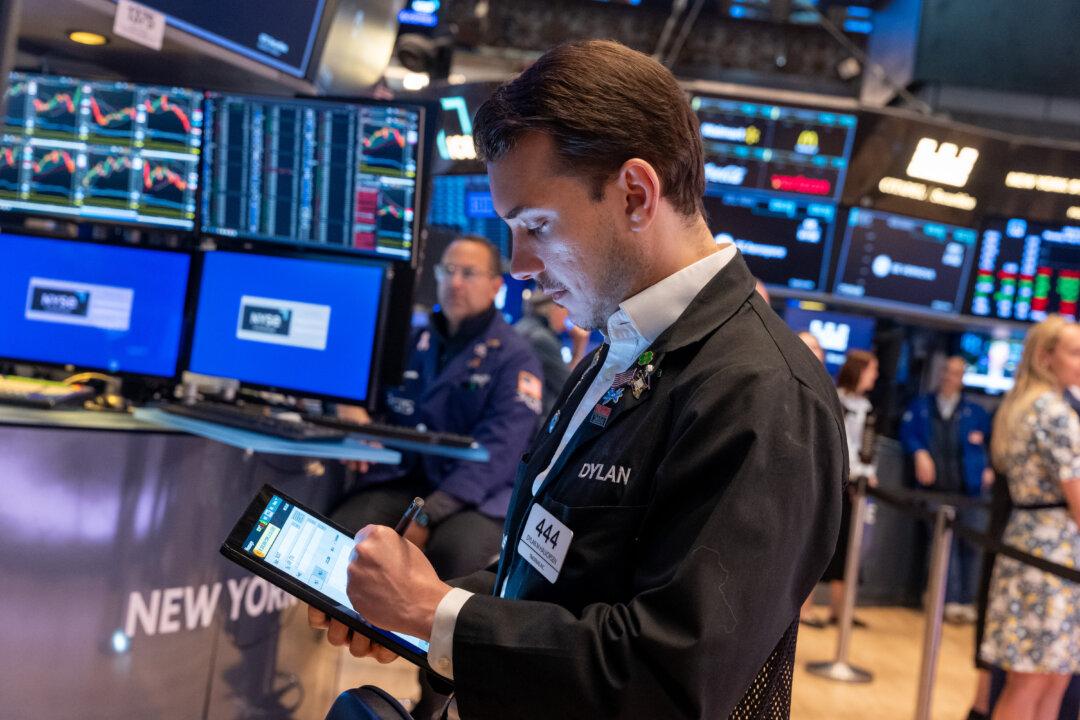U.S. stocks fell before the Memorial Day long weekend after President Donald Trump threatened to impose tariffs on the European Union (EU) and smartphone manufacturers, including Apple.
The blue-chip Dow Jones Industrial Average fell by 256 points, or 0.61 percent, to finish the session. The broader S&P 500 dropped by 39 points, or 0.67 percent. The tech-heavy Nasdaq Composite Index fell by 188 points, or 1 percent.





